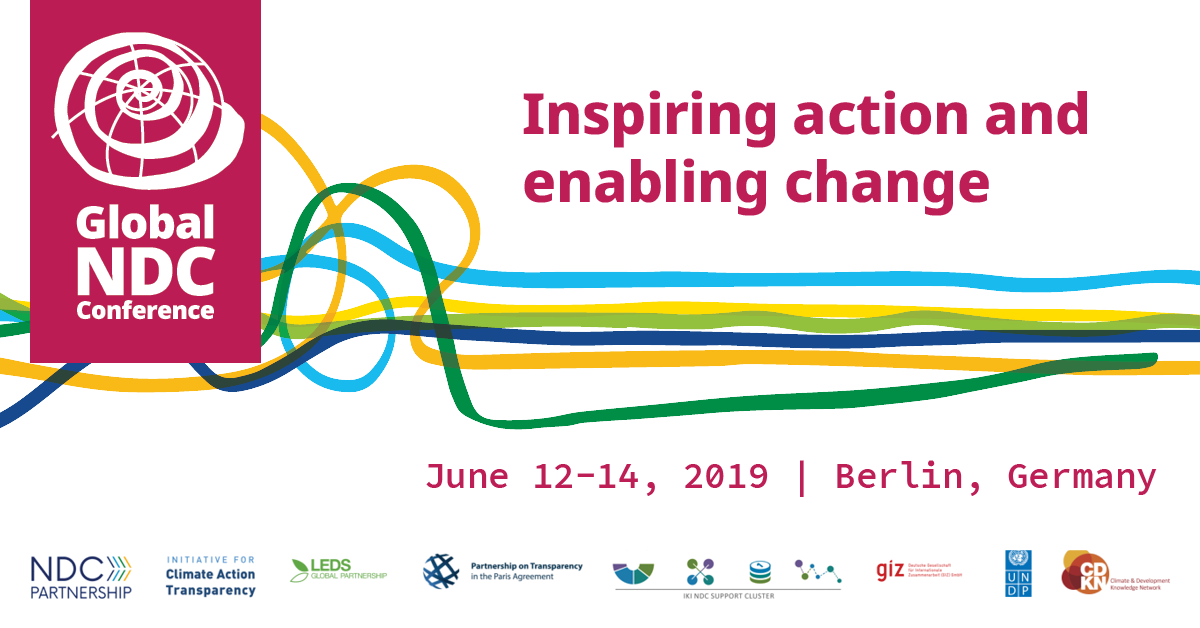By all accounts, countries’ official pledges to reduce greenhouse gas emissions—the nationally determined contributions (NDCs)—are insufficient to reach the Paris Agreement goal to hold global warming below 2 °C this century.
To take stock of the efforts and to accelerate the pace of implementing the NDCs, donors, government officials, international agencies, and representatives from the private sector, research community and civil society from 80 countries convened in Berlin June 12-14 for the Global NDC Conference organized by the NDC Partnership and key partners. A central aim of the conference was exchanging knowledge about good practices and innovative approaches, identifying challenges and solutions on integrated NDC governance, finance mobilization, and strengthening connections across stakeholders.
The energy and transportation sectors continued to occupy the lion’s share of the plenary discussions. But representatives from developing countries and some researchers pointed out the importance of making the agriculture sector an essential component in implementing the NDCs.
Agriculture is key to achieving NDC goals for multiple reasons. First, a majority of submitted NDCs already mention adaptation and agriculture as part of the path to achieving their low-emission growth strategies. Second, the future of carbon-rich environments like forests, mangroves, and peatlands is linked to the development of agricultural production. Third, joint interventions on agriculture and carbon-rich environments offer mitigation services at a competitive cost while also improving food security and nutrition in rural areas. IFPRI and the forestry and land use consulting firm UNIQUE, with support from the German Corporation for International Cooperation (GIZ), organized a side event dedicated to this issue.
The event presented case studies that demonstrate the large untapped potential of sustainable land use and land use planning. The latter is an important element in so-called nature-based solutions that can deliver positive results for mitigation, adaptation, and across multiple Sustainable Development Goals (SDGs) such as the provisioning of healthy foods and preserving biodiversity. The presenters and the discussants also made clear how land use planning is tightly connected to gender roles, nutrition, and civil society engagement and it’s therefore a natural laboratory for experimenting and learning how to develop policies that must increasingly contend with multiple objectives and account for tradeoffs.
Ultimately, the NDC Partnership was receptive to these ideas. The importance of nature-based solutions, the co-benefits of coordinating the climate agenda with gender and youth issues and goals, and the importance of policy coherence and collaboration across sectors and ministries have become part of the key messages of the conference. The NDC Partnership brings these messages to the June 17-27 UNFCCC Bonn Climate Change Conference (SB50), where requests to develop more ambitious mitigation climate actions are already underway. While the UNFCCC has started engaging with the agriculture sector through the Koronivia joint work on agriculture, the hope is that the sector will receive an overdue recognition during the next round of UNFCCC negotiations and revisions of countries’ NDCs.
Alessandro (Alex) De Pinto is a Senior Research Fellow with IFPRI’s Environment and Production Technology Division.
For more information on IFPRI’s work in this area, see our Climate Change Topic Page.







